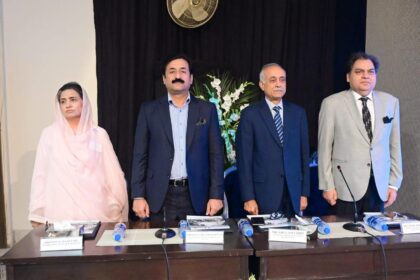Rising Incidents of Sexual Violence in Punjab — Laws Exist, Justice Doesn’t.
By: Iqra Liaqat.
Punjab, Pakistan’s most populous province, is witnessing a disturbing surge in cases of sexual violence against women, young girls, and vulnerable groups.
Each new case reopens old wounds and reinforces the painful reality — laws exist on paper, yet justice remains out of reach.
From Lahore to Kasur, Faisalabad to Sheikhupura, what hurts more than the statistics is the silence — the silence of victims, often shamed by society instead of being supported. In that silence, justice dies long before it reaches the courtroom.
⚖️ Laws Exist — But Where Is the Implementation?
Over the past few years, the Punjab government has introduced several laws to protect women and children from abuse.
The Punjab Women Protection Act 2016 provides legal safeguards against domestic and sexual violence. The establishment of Women Protection Centres, helpline 1043, and electronic monitoring systems offer some hope for victims seeking safety.
Similarly, the Punjab Child Protection Act 2015 created a strict framework against child abuse, while the Anti-Rape (Investigation and Trial) Act 2021 introduced special courts, mandatory female police officers, and DNA testing as legal evidence — all steps in the right direction.
Yet, despite these laws, the streets, police stations, and courtrooms of Punjab still echo with cries for justice that go unheard.
🚨 Systemic Failures
Poor police investigation, judicial delays, and social stigma are the three chains that keep justice shackled.
In most cases, DNA tests are delayed, medical reports are incomplete, and families are pressured into “settlements.”
Every new incident thus becomes another silent defeat for justice.
Even more tragic is the plight of the transgender community — victims whose cases rarely make it to official records. Although the law acknowledges their rights, society continues to ignore their suffering.
💡 The Way Forward
Punjab does not need new laws — it needs to enforce the ones it already has.
Police must be trained in modern investigation methods for sexual crimes.
Shelter homes and legal aid centres should be available in every district.
Special courts must be bound to conclude rape cases within 90 days.
Awareness campaigns in schools, media, and communities should fight stigma and victim-blaming.
Above all, society’s mindset must change — because laws can punish, but only empathy can heal.
✍️ Conclusion
Punjab’s crisis is not the absence of law — it’s the absence of empathy and enforcement.
Justice is written in the law books, but outside the courts, its screams are drowned in silence.
It is time for every institution, every leader, and every citizen to echo a single message:
“Silence in the face of sexual violence is complicity —
Justice is not charity, it is every citizen’s right.”











